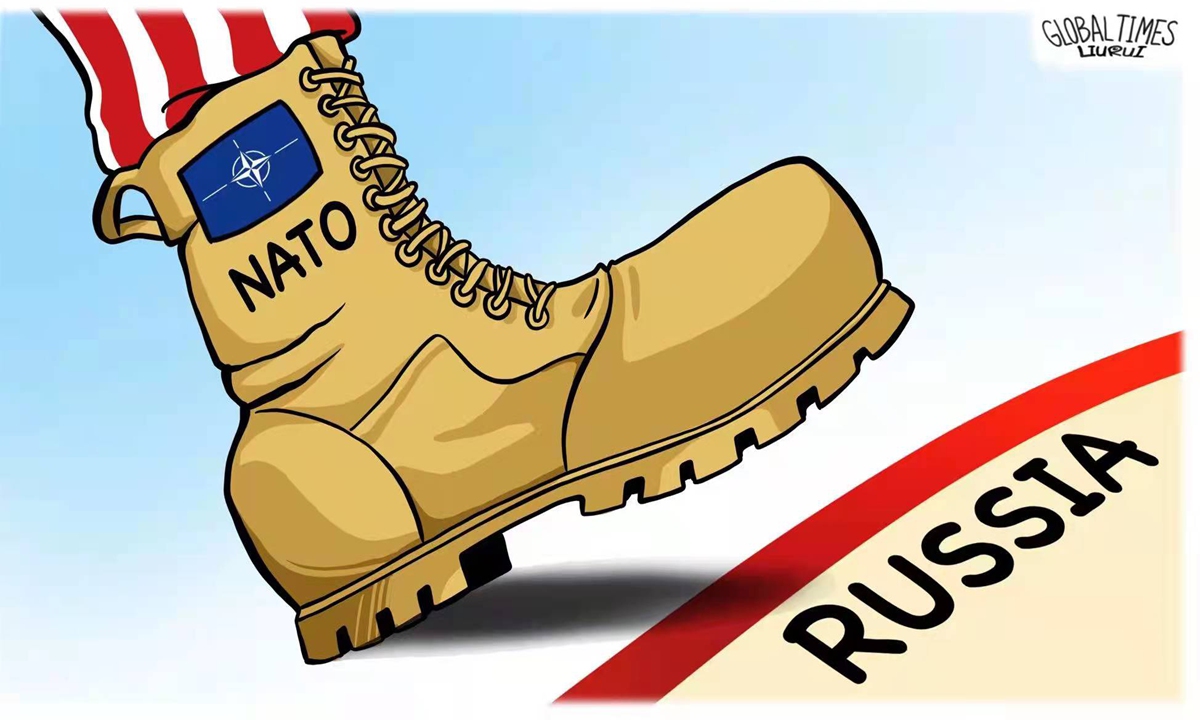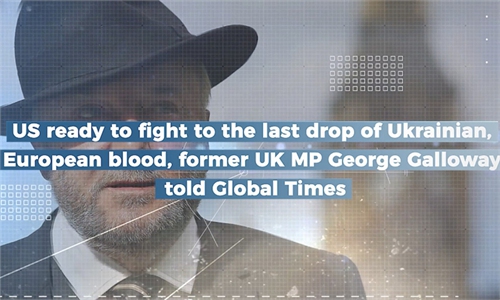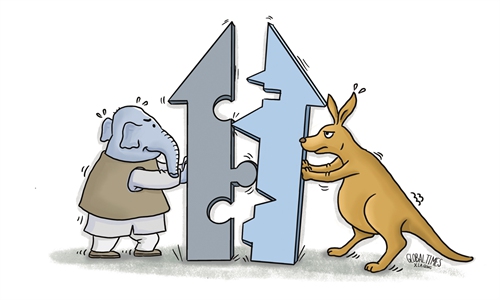European integration framework unsuitable for Asia

Cause of war Cartoon: Liu Rui/GT
The Russia-Ukraine conflict has demonstrated once again that the model of European integration, of which NATO is an important part, cannot be used to develop political and economic security order in Asia.After the Cold War, a dominant international understanding emerged that the European model should be appropriate for other regions. This view was widely shared in Asia, where it was believed that Asia could follow Europe's example and further integrate the entire region through economic integration, which in turn would lead to a negotiated settlement of the various ethnic and territorial disputes that existed in the region.
The approach taken by Europeans, creating a community of interest by strengthening economic ties, could be an example for other regions, including Asia, to observe. But its sustainability would still depend on its intrinsic and strict "criteria."
European integration is a process of industrial, economic, political, legal, social and cultural integration. To join the EU, reforms must be carried out according to the bloc's standards, which certainly interfere with the bottom line of different political systems and national cultures. These reforms help the West advance its global expansion.
The EU's intrinsic values and political and military alliances make this model highly selective and exclusive. Its basic framework does not adequately accommodate different politics, faiths or nation-states. NATO is at the center of this security model.
Russia's military actions have been closely linked to the political system and reconfiguration of power that President Putin has pursued. While internal factors are the main cause, European integration has not been able to integrate Russia into the "family" and has continuously squeezed Russia's geopolitical space.
When this model begins to expand, it inevitably exacerbates conflicts and confrontations between different faiths, political systems and ethnic groups. It makes the other side feel more insecure while ensuring its own security. It has not been able to effectively solve the problems of common development and lasting peace in the European region, but has instead exacerbated the geopolitical confrontation and contributed to the Russian-Ukrainian conflict.
The existing European integration can dissolve the conflicts between similar institutions or values, but it still has a long way to go to dissolve the conflicts between nation-states, and when another model cannot be dissolved or is contradictory, a violent confrontation is bound to occur.
European integration is not a peaceful evolution, but the result of imperial rivalry. Many of the political and security contradictions and ethnic strives during Asia's development are related to the hegemony of the historic Western empire. Major EU and NATO member nations are old colonial powers, many having invaded Asia in the past. Many of the border conflicts in Asia stem from colonization by the West.
Asia needs further cooperation to reconstruct political and economic security order. Therefore, we must pay great attention to this historical background when we observe the Russian-Ukrainian conflict amid the integration process in Europe.
The Asian region is characterized by pluralistic political and economic development models and diverse ethnic and religious beliefs. If Asian countries develop according to the roadmap of values and military alliances that the US is now trying to advance and undergo political transformation according to US standards, there will inevitably be serious divisions, unrests, and eventual destruction of the economic cooperation that is already deepening.
The challenge that Asia faces now is how to break out of these obstacles set by the US and the West and find its own way to achieve long-term development and lasting peace.
The author is a senior editor with People's Daily, and a senior fellow with the Chongyang Institute for Financial Studies. opinion@globaltimes.com.cn



